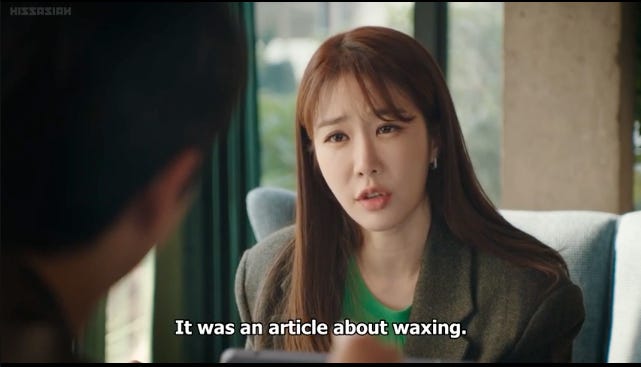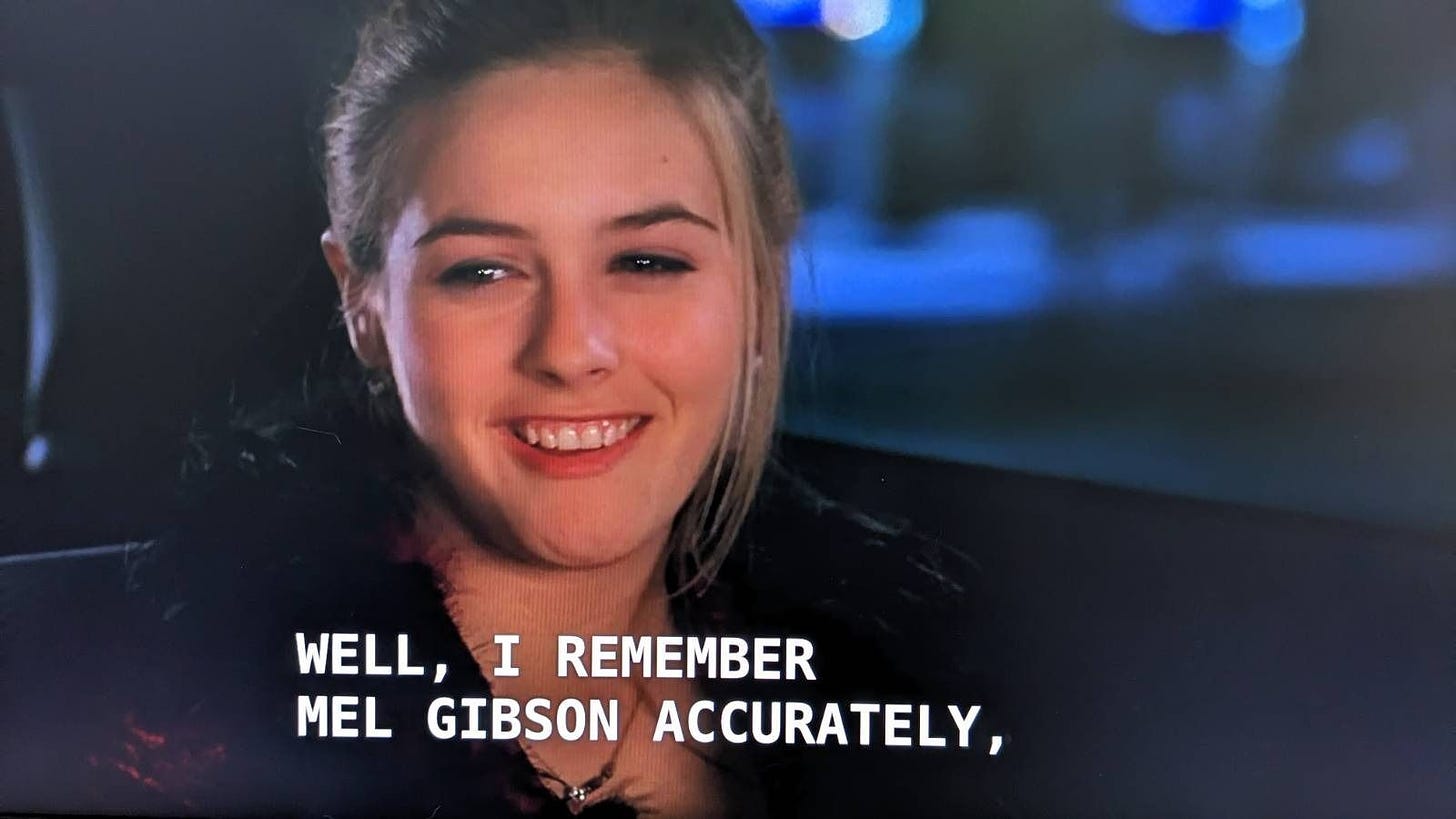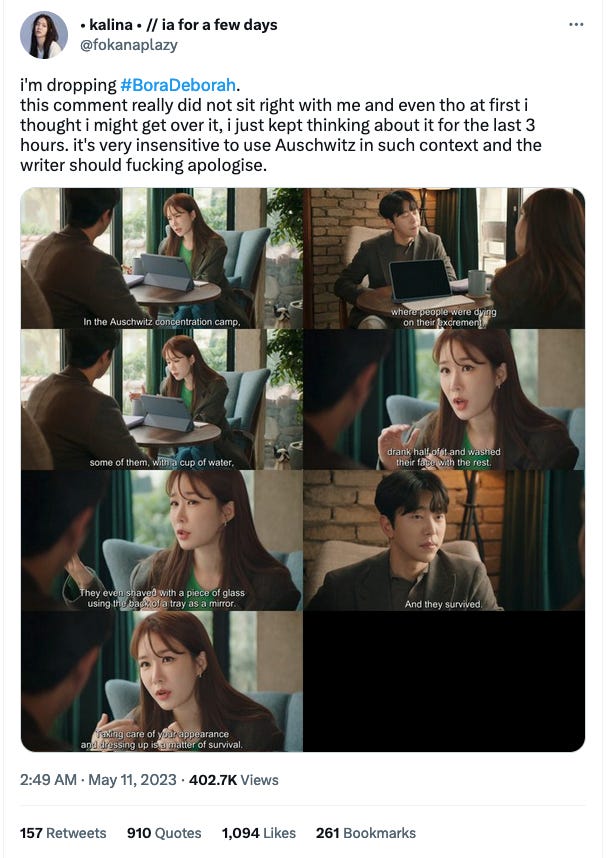Bora! Deborah has been an unusually controversial drama in the way it has split the fandom into people who see nothing wrong with the narrative and people who can't understand how others see nothing wrong with the narrative.
I belong to the latter.
But while my many woes about Bora! Deborah (also titled True To Love) find few takers amongst its fans, one scene in episode 9 united us all (okay, almost all).
Spoilers for episodes 8 and 9 below!
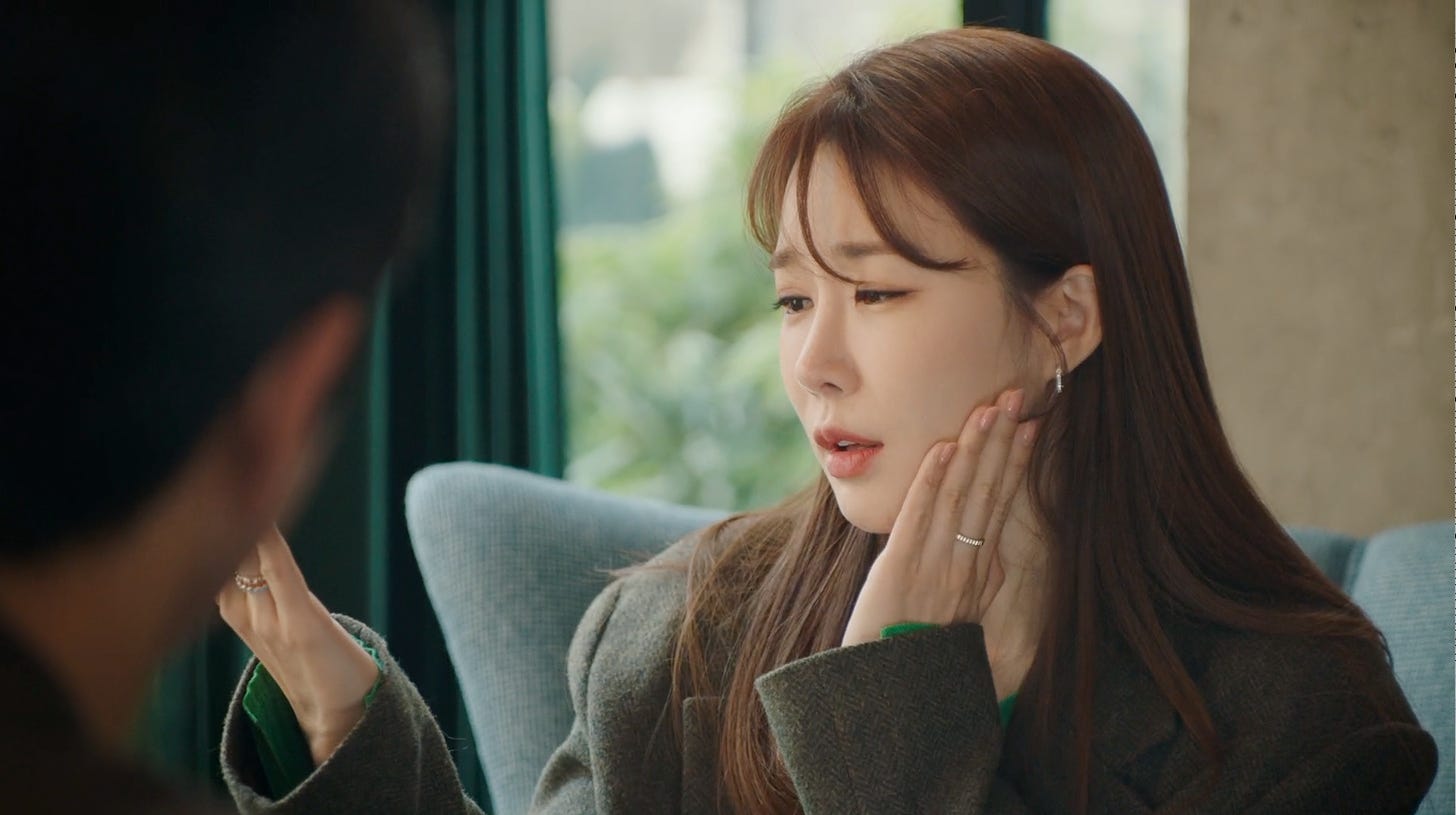
After an electric kiss at the end of episode 8, our protagonists Bora and Su-hyuk meet at a cafe for work the next day, prepared to navigate the awkwardness of the morning-after.
By now we know that Bora has the unique ability to make every bad situation much, much worse when she's feeling embarrassed. So, when she launches into an elaborate explanation of why kisses are perfectly common between acquaintances and nothing to make a big deal about, we cringe for her and wait for it to be over.
(This drama is especially hard for people with intense second-hand embarrassment issues like me.)
But then the conversation turns to work and Bora's plan to win back her ex so she can write a victorious essay about it (just... go with it).
Her strategy is to "become prettier".
When Su-hyuk seems skeptical, she explains that even in the worst of circumstances, people try to look good to keep their spirits up.
Except she chooses to explain it with this example:
"In the Auswitch concentration camp, when people were dying on their extrements, some of them drank half of their cup of water and washed their face with the rest. They even shaved with a piece of glass, using the back of a tray with a mirror. And they survived. Taking care of your appearance and dressing up is a matter of survival."
Su-hyuk is impressed by her reference and asks if she's been reading Viktor Frankl's Man's Search For Meaning. Bora replies that she read it in a magazine.
Su-hyuk sits back deflated, and we sit back trying to grapple with what the heck she just said right now.
It's important to explain the issue here with some context.
The anecdote Bora quoted did originally come from Man's Search For Meaning, a book written by psychologist and holocaust survivor, Viktor Frankl.
The book was first published in 1946 and had sold over 10 million copies by 1997, when the author passed away. It came back into popular consciousness with a vengeance when Instagram wellness influencers began quoting it to motivate each other through grueling Pilates routines.
There is an excellent article by Mattie Kahn on Vox that explains this phenomenon eloquently.
... the recent social media proliferation of Frankl-mania is distinct from what preceded it: It operates and spreads without encouraging real awareness of, or interest in, what Frankl endured, let alone in the Holocaust as a historical event. Lines from the book show up on Pinterest and Instagram like free-floating credos. Quotes are reposted. Websites aggregate them. It is no simple feat to make memories of incarceration sound like hollow mottos of hustle culture, but here we are: the recollections of a Holocaust survivor whose experiences have been sold for literal parts on the internet.
(Emphasis mine.)
Frankl lost his parents and his wife to those camps. When he was freed in 1945, he bent his mind to writing this book. It's well understood that the author would not have taken offense at this trend of applying his motivational theories to overcome heartbreaks and fitness struggles.
Frankl does not rank categories of anguish; to him, suffering is absolute.
Some scholars who are well versed with the man's life have argued that it's likely Frankl held on more dearly to his theories after his experiences so he could construct an identity that was free from his victimization.
There are also critics of Frankl's book who view his attempts at creating a heroic, mind-over-matter narrative as belittling towards those prisoners who could not withstand the tortures of the Nazi camps. Were they too poor spirited to come out on the other side and write a tell all?
There may be a heavy dose of survivor bias at play here.
Bora's article (if it was real) would have been the work of a magazine's staff writer on a tight deadline, asked to motivate readers through the hardship of regular waxing even when things aren’t going great in life. The fact that Bora had no idea where the story was from is a good indication that such an article would have forgotten to attribute it to Viktor Frankl.
To her, the story is entirely allegorical. Something to take inspiration from to overcome her mundane troubles.
For most viewers, the placement of the story was almost a bigger issue than a character using the Frankl's work to motivate themselves. The fact that Bora had read it in a magazine and not in the book was part of a running joke in the drama to emphasize her shallowness.
She is a modern-day Cher from Clueless, correctly identifying a Hamlet quote thanks to her pre-occupation with Mel Gibson. But where Clueless pokes fun at Cher as well as her self important romantic rival, Bora is always the butt of these jokes.
Her knowledge of the Nazi regime then cannot be part of a deeper exploration of human suffering. It must be off-handed and insulting to victims of Holocaust because that is how superficial the drama wants her to seem.
A year back, a K-drama had referred to research conducted in Nazi concentration camps and faced none of the backlash Bora! Deborah dealt with this month.
Woo Young-woo in Extraordinary Attorney Woo brought up the work done by Hans Asperger with children during the holocaust that pushed forward the study of autism at a time when any hint of disability was a death sentence under the Nazis.
Hans Aspeger, the first person to do research on autism, thought there was a positive side to it. He said, "Not everything that steps out of line, and thus 'abnormal', must necessarily be 'inferior'." That with their new ways of thinking and experiences, people with autism can later accomplish great things. Hans Asperger was a Nazi collaborator. His job was to separate children who were worthy of living and who weren't. Even just 80 years ago, autism was an illness that was not worthy of living.
Source: Netflix subtitles, Extraordinary Attoryney Woo
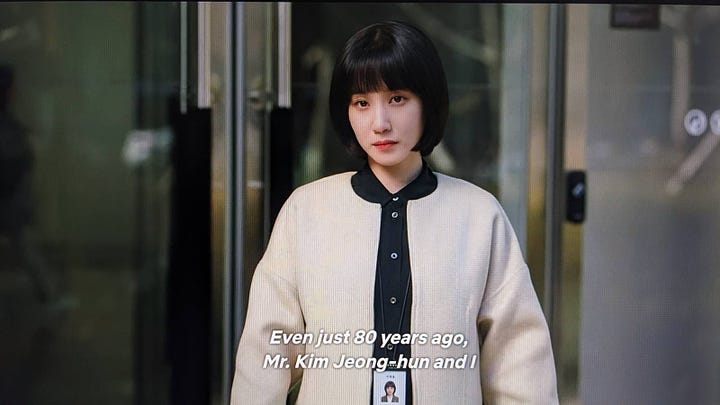
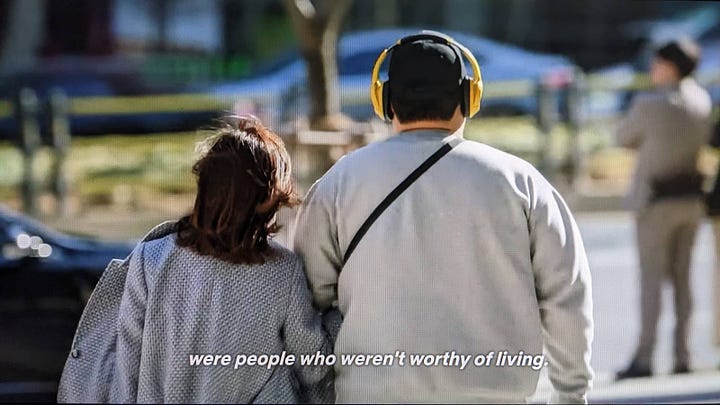
It's a horrifying story that was used sympathetically only to underline how cheaply society held the life of people with autism just a few decades ago.
I bring this up to counter those who claim viewers were easily outraged by a scene that was never meant to be taken seriously.
The problem with the scene in Bora! Deborah was that neither the story nor Bora were meant to be taken seriously.
One was a motivational quote and the other was an airhead. The history of antisemitism, the systemic disenfranchisement of Jews, and sufferings of the victims of holocaust were never meant to linger on the minds of the viewers.
The backlash to this scene was loud and swift.
While many online wondered if South Koreans can be held to the same moral standards as those who grew up learning about the Third Reich in the West, Koreans decided the matter themselves by building up so much pressure on the creators online that they came out with an apology and deleted the scene from streaming services across the world.
We know from past instances that this is a rarely moment of consession from a K-drama production house. Despite the tremendous push back against Penthouse 3 for including a character sporting dreadlocks and tattoos, the producers faced no serious consequences for hand waving the matter away with a non-apology.
Part of the reason for Bora! Deborah's swift actions was undoubtedly the irrelevance of that exchange.
Cutting it affected nothing in the scene because it served no real narrative purpose.
It was an easy gag that came back to bite them a bit too hard.





